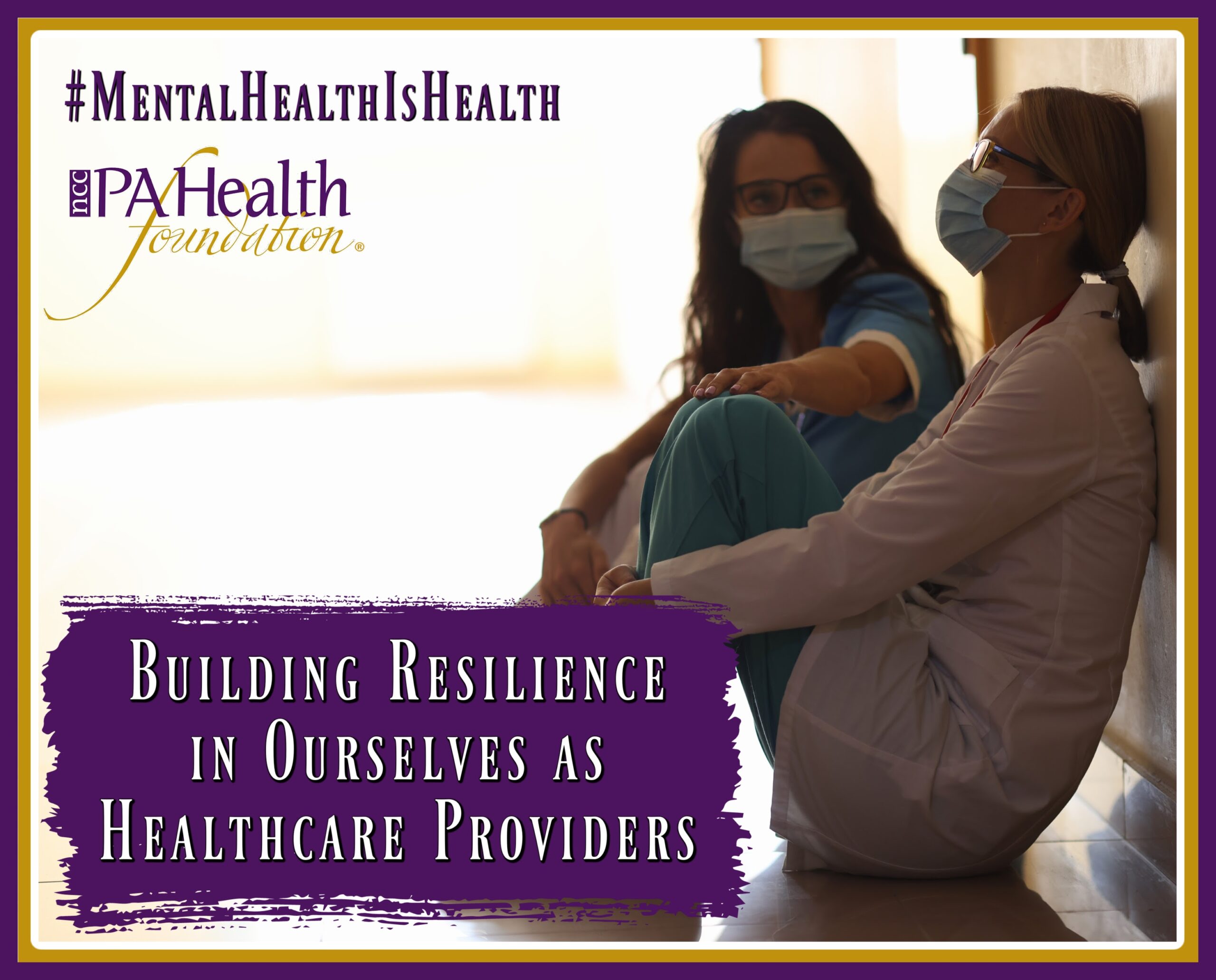Building Resilience in Ourselves as Healthcare Providers
Resilience is the capacity to recover quickly from difficulties. While many think of resilience as not experiencing negative emotions or difficulties in the face of adversity, it is quite the opposite. Cultivating resilience often involves a journey of facing trauma or negative experiences and navigating through them utilizing healthy coping skills.
The American Psychological Association (APA) outlines four important strategies for developing resilience: Connection, wellness, healthy thinking, and meaning. While their article gives examples for the general public, which providers can share with their patients, below are ideas on how healthcare providers can work on these areas too.
- Connection: Since many isolated during the pandemic, limiting contact with others outside the hospital/clinic, moving to telehealth, or deferring in-person conferences or lectures, it has been hard to find connection. Recovering and rebuilding relationships is crucial to resilience (and our mental well-being). Nurturing supportive relationships with colleagues, friends, family, or support groups can aid in the validation of experiences and emotions, help bring about a sense of shared human experience/common humanity, and greater fulfillment.
- Wellness: Prioritizing your well-being includes nutrition, hydration, adequate sleep, exercise, meditation, and other activities to maintain your mental health. Ensuring you have time to take a meal break and hydrate during shifts is crucial to maintaining our personal health. If these mental and physical needs aren’t met, building resilience can be challenging.
- Healthy thinking: Keeping things in perspective (control what we can control), accepting change, maintaining a positive outlook, and learning from the past are strategies to fortify our mental health and resilience to challenges.
- Find meaning and purpose: As healthcare providers, give yourself credit where it is due; this does not have to be a big gesture. For example, simply acknowledge that you are contributing good things to your community while also being a good healthcare provider, parent, friend, or colleague. If you strive to have meaning outside of your career in medicine and family/friend roles, seek out volunteer opportunities that can reframe your focus and give you meaning and joy.
Providers aren’t alone. When the strategies above aren’t enough to maintain one’s resilience, seeking help is a great next step. Whether that’s sharing experiences with trusted friends or colleagues or connecting with a licensed mental health professional to find additional strategies or tools for moving forward.

References and Resources:
- American Psychological Association: Building Resilience, https://www.apa.org/topics/resilience
- American Psychiatric Association: New Research: Coaching Healthcare Workers Supports Wellness and Resilience During COVID-19, https://www.psychiatry.org/News-room/News-Releases/new-research-coaching-healthcare-workers-supports
- Centers for Disease Control and Prevention. Risk Factors for Stress and Burnout, https://www.cdc.gov/niosh/healthcare/risk-factors/stress-burnout.html
- Mayo Clinic. Resilience: Build skills to endure hardship, https://www.mayoclinic.org/tests-procedures/resilience-training/in-depth/resilience/art-20046311

